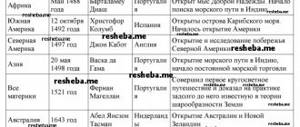Family and life
Family and life
Performed by 10th grade student Nadiya Ildusovna Bashirova
Supervisor
Murashkin E.A.
Plan:
- Family as a social institution
- Family functions
- Family in modern society
- Household relations
- The house we live in
Family as a social institution
The family is one of the most ancient social institutions. It arose in the conditions of primitive society and took on different forms at different stages of social development.
Another social institution is closely related to the institution of family - the institution of marriage.
Marriage is a socially recognized form of relationship between a man and a woman with the purpose of creating a family.
The institution of marriage regulates the relationship between spouses and determines their rights and obligations in relation to all family members. Each family is a unique world based on continuity, traditions, emotions, feelings, and certain values.
Family plays a huge role in social progress.
Thanks to it, direct continuity of generations . The family prepares a future wife and mother from a girl, and a father and husband from a boy.
Family functions.
- reproductive and are primarily distinguished .
- The reproductive function (from the Latin productio - to produce) is determined by the need to continue the human race.
- Raising children in a family is a lot of daily work, both physical (for example, when caring for babies) and mental (when, taking care of the child’s spiritual development, they talk with him and encourage the manifestation and development of certain moral qualities). Thanks to the family, the child receives his first labor and moral skills: he learns to help around the house, engage in self-care, behave according to certain rules, and take care of parents and older family members.
Family in modern society.
- The world of the family is influenced by a number of factors coming from society. These primarily include law, religion, social consciousness, traditions, as well as the nature of social support for the family by society and the state. The state of the family is determined by social development. Therefore, it is no coincidence that the family is often represented as a unit of society.
- In modern society, the family is experiencing qualitative changes. They are associated with global social processes of industrialization, urbanization, unusual for pre-industrial (traditional, agricultural) society. Traditions, norms of behavior, the nature of relationships between spouses, parents and children are tested by life, sweeping away what is outdated and inappropriate to social development.
Household relations.
- In the course of people's daily lives, everyday relationships develop. Household relations are a stable system of everyday non-productive connections between people regarding the satisfaction of their primary needs (food, clothing, housing, health , child care, as well as communication, recreation, entertainment, physical and cultural development).
One of the aspects of the scientific study of everyday life is the study of time spent on meeting household needs.
On average, one person needs about 300 hours per year to cook food at home. For women, this activity takes up 40% of the time spent on housekeeping. The time spent on washing and ironing (on average 58 hours per year) and on purchasing goods for the family (about 500 hours per year) is high.
Another aspect of studying everyday life is the responsibilities of spouses. Among young married couples, 17% of husbands cook dinner (20 years ago none of them did this), 55% wash clothes, 35% walk with children, 16% accompany children to kindergarten or nursery, 80% buy groceries, 58% wash dishes, 9% attend school and check children’s lessons. This indicates an emerging trend towards more active participation of men in household chores. At the same time, the average duration of women's domestic work is incomparably higher than that of men. Women devote 36 hours a week to housework and only 13 hours for men. Every third of young husbands and every fifth of middle-aged spouses does not do household chores. These numbers make you think. After all, a fair distribution of household responsibilities between spouses and mutual assistance in everyday life is one of the most important moral foundations for the existence of a modern family.
The house we live in
- A home in the life of every family means more than just a roof over their head. A home is a relationship between the people living in it. These are traditions, habits. These are events, incidents, meetings, partings. Home is a special sphere of culture .
- Everyday life is the area most hidden from social control.
Most often, we are responsible for our actions only to our conscience. It is this circumstance that can give rise to dual morality: a person behaves differently in a production or educational group and at home, in a store, or on vacation. And no one will force you to stop and evaluate your behavior except yourself .
Practical conclusions.
- 1 The future of the Russian people largely depends on how many children appear in each new young family and how they grow up. Your family will probably be among these young families in a few years. And you personally will be able to contribute to the future generation of the country, its moral character.
- 2 Try to understand the fact that you are responsible for the connection between generations. What is a family value is destined to live exclusively with your careful attitude, which is subsequently passed on to your children. In their personality, in their future families, your life and the life of your parents will continue.
- 3 The world around us can become better if each of us takes care of its beauty and moral purity. And this starts with small things: creating order and comfort in the entrance, elevator, landscaping your yard, caring for the new playground, tables and benches placed near the house... You can notice many more important things that require caring hands and warm hearts.
Sources.
- https://school.xvatit.com/index.php?title=%D0%A1%D0%B5%D0%BC%D1%8C%D1%8F_%D0%B8_%D0%B1%D1%8B%D1 %82
- https://www.google.ru/search?newwindow=1&hl=ru&site=imghp&tbm=isch&source=hp&biw=1366&bih=705&q=%D1%81%D0%B5%D0%BC%D1%8C%D1%8F&oq=% D1%81%D0%B5%D0%BC%D1%8C%D1%8F&gs_l=img.12..0l10.12081.16347.0.18330.6.5.1.0.0.0.331.1211.1j0j2j2.5.0…0.0.0..1ac. 1.12.img.Qad4sjc_Pos#newwindow=1&hl= ru&site = imghp&tbm = isch&sa =1&q=%D0%B1%D1%8B%D1%82%D0%BE%D0%B2%D1%8B%D0%B5+%D0%BE %D1%82%D0%BD%D0%BE%D1%88%D0%B5%D0%BD%D0%B8%D1%8F+%D0%B2+%D1%81%D0%B5%D0%BC%D1 %8C%D0%B5&oq=%D0%B1%D1%8B%D1%82%D0%BE%D0%B2%D1%8B%D0%B5+%D0%BE%D1%82%D0%BD%D0% BE%D1%88%D0%B5%D0%BD%D0%B8%D1%8F&gs_l=img.1.1.0i24l3.736096.740394.6.741747.17.9.0.8.8.0.328.1786.1j4j1j3.9.0…0.0.0..1c .1.12.img.93XcMwH_ZSM&bav=on.2,or.r_qf.&bvm=bv.47008514,d.bGE&fp=f674840a165c79cf&biw=1366&bih=705&facrc=_& imgrc =Y7FEncl_N6nY-M%3A%3BYVjvi LY_4PPZHM%3Bhttp%253A%252F%252Fwww. sun-hands.ru%252Fflybof44.jpg%3Bhttp%253A%252F%252Fwww.sun-hands.ru%252F1psihologbit.html%3B413%3B413
Summary of a social studies lesson on the topic “Family and Life”
Social studies lesson on the topic “Family and Life.” A basic level of. Teacher of history and social studies, MBOU gymnasium “UVK No. 1” T.A. Mikhina
Lesson topic: “Family and everyday life.”
Lesson type:
combined, lesson - discussion
The purpose of the lesson:
- Formation of students’ ideas about family and marriage, problems of modern families,
- Show the decisive role of the family in the formation of personality, point out the basic moral norms of the family;
- to develop knowledge about the basic functions of the family and the results of their violation; developing an understanding of the responsibility of all family members for its preservation;
- help in forming attitudes towards creating your own family;
- Discuss and propose ways to solve the problems of a modern family;
- Practice the skills of drawing up a complex plan, identifying a problem for writing an essay.
Lesson methods:
verbal, written, visual.
Equipment:
- Social advertising videos;
- presentation “Peter and Fevronia” (students prepare independently),
- lesson presentation;
- Handout;
- family anthem.
Sources:
Textbook L.N. Bogolyubova social studies grade 10 (basic level),
Social science. Workshop. Profile level. 11th grade Ed. L.N. Bogolyubova.
Lesson developments in social studies, grade 11. E.N. Sorokina. Profile level
During the classes:
- Motivation.
Before we start our lesson, I would like to ask you this question: “what is the main task facing us in social studies lessons in the 10th grade?” Of course, we continue to prepare for the exam and obtain the knowledge and skills necessary to successfully pass it. In addition, the knowledge gained in social studies lessons will be useful to each of you in everyday life, since our subject is very closely related to it. (1 min)
- We continue to study the topic: “Social relationships” and what will we talk about today? To answer this question, I'll ask you to look at a few slides. Students formulate the topic of the lesson. "Family and Life". (1 min) – write down the topic of the lesson in a notebook.
- Setting a goal
: - definition of the problem - quote: The family is the crystal of society. Hugo V. -problem: - the role of the family in modern society. (1 min)
- What is needed to achieve the goal? To solve our problematic task, we need to draw up a plan. Making a complex plan (5min)
The concepts of “family” (as a social institution and a small group) and “marriage”
- The main types of families in modern society are A) nuclear, B) extended
- Family functions: a) reproductive; b) leisure; c) educational; d) emotional and psychological; e) economic; f) status, etc.
- The main trends in the development of the modern family: a) the predominance of partner-type families, the change in the role of women in the family and society; b) the predominance of the number of small families; c) an increase in the number of “open marriages”, d) deviant behavior in the family.
- State and family.
approximate plan for task C8 1) concept (definition)….. 2) characteristics (features, traits) 1. characteristic 2. characteristic…. 3) typology (types, types, forms, styles) 1. type 2. type ... 4) functions 1. function 2. function ... 5) problems 6) role (meaning) in the life of society 7) conclusion about ...
- What is the basis for creating a family? Of course it's love. We all know that February 14th is St. Valentine's Day, the patron saint of all lovers. But Russia has its own patrons of lovers: Orthodox saints Peter and Fevronia... and now we will listen to a message about them. (4 min)
- Let's begin to reveal the points of our plan.
Social Institute,
performing a number of important social functions. Characterized by a certain set of social norms, sanctions and patterns of behavior that regulate relationships between spouses, parents, children and other relatives;
The fulfillment of the family role depends on the correct formation
role image.
Let's remember what social role and social status are.
Work in groups (3 min) – role-playing set for: parents, children, spouses, brothers and sisters. discussion)
Small social group
, based on marriage, consanguinity or adoption. Allows you to satisfy personal needs, is connected by a commonality of life, mutual assistance and mutual responsibility.
- types of families: (work with the table – 3 min)
| Comparison lines | Types of families | ||
| Number of children | Large families | Small children | Childless |
| The nature of the distribution of household duties | Traditional (Patriarchal) – household duties are performed mainly by the woman, but the man is responsible for the family before society, and he also has the main power. | Partner type - responsibilities are performed jointly. | |
| Related structure | Nuclear – a married couple with children. | Extended – a married couple with children and one of the relatives living with them. | |
| Type of education | Authoritarian – based on the authority of parents. | liberal – built on the self-determination of the individual, regardless of traditions and habits. | Democratic - gradually instills in the child such traits as, for example, involvement in the destinies of other people. |
- functions of the family (read the statements and indicate what functions of the family are being discussed)
— Family life, perhaps, is never a complete holiday. Know how to share not only joys, but also grief, misfortune, misfortune. /V.A. Sukhomlinsky/
— Family starts with children. /A.I. Herzen/
- All moral education of children comes down to a good example. Live well, or at least try to live well, and as you succeed in living a good life, you will raise your children well. / Lev Nikolaevich Tolstoy /
“The hands of a kind woman wrapped around a man’s neck are a life preserver thrown to him by fate from the sky.” / Jerome Klapka Jerome /
— From our parents we received the greatest and most priceless gift - life. They fed and raised us, sparing neither strength nor love. And now that they are old and sick, it is our duty to cure them and nurse them back to health! / Leonardo da Vinci /
- Every child is born unlearned.
It is the duty of parents to teach their children. / Second Great Catherine /
- When parents are smart and virtuously modest, then their sons are well-behaved.
/ Sebastian Brant /
Formulate the functions of the family. (3 min)
What features are not listed? Continue the list.
1. Reproductive - reproduction of new members of society.
2. Social - the formation of the individual as a personality.
3. Economic - general economy, assistance, support.
4. Protective - physical, economic, psychological protection.
5. Status - belonging to a certain social class, nationality, etc.
6. Emotional - confidential communication, emotional expression of feelings, care, affection, love.
- Now let's talk about the problems of modern families. (watch video) formulation of problems. (4 min) skit 2 min discussion 4 min.
Development trends and family problems
1
. Predominance of nuclear families.
2. Domestic violence.
3. Changing the role of women in society. (consequences to discuss)
4. Growth of social orphans. (discussion of causes and consequences)
5. The number of legal marriages is decreasing. (pros and cons) (fill out the table on the board and in notebooks)
| Positive aspects of civil marriage (according to its supporters) | Negative aspects of civil marriage |
| “This is a rehearsal for family relationships, allowing you to gain experience of living together. | — People in a civil marriage do not feel the strength of their position, the seriousness of the relationship. |
| — Civil marriage can become a temporary form of personal life. - such relationships are more profitable than early marriages, which in most cases break up after 5-7 years | — They are deprived of a certain social status. — Public opinion is opposed to such unofficial unions. — Children react painfully to the precarious status of their parents. — In a civil marriage, the property and other rights of spouses and children are not protected |
- What are the consequences of these trends?
- What are the reasons behind these trends? (2min)
| Reasons depending on: | |
| States and societies | Family members |
12. state policy in the field of family relations. (independently formulate ways known to them to regulate family relations, state policy priorities, make proposals (work in groups))
Reflection:
Chamomile is a symbol of purity, love, fidelity. (a hymn to the family sounds, students write the main family values on chamomile leaves)
Our lesson is coming to an end. Let's take a short test based on the material we've covered. (slide 12)
“A family is a small __________ (2) based on _________ (1) and/or consanguinity, whose members are united by living together and running a household, an emotional connection, and mutual ___________ (3) in relation to each other. Also called family is social __________ (4), i.e. a stable form of relationships between people, within which the main part of people’s daily lives is carried out, i.e. sexual relations, childbearing and primary ____________ (5) children, a significant part of domestic care, educational and health care, especially in relation to ___________ (6) and the elderly.”
Select from the list the words that need to be inserted into the gaps.
A) children, B) marriage, C) socialization, D) team, E) responsibilities, E) institution, G) relationships, H) group, I) love, K) respect.
Thank you for the lesson! And in conclusion, I would like to read the following poem for you:
Family means happiness, love and luck, Family means trips to the country in the summer. Family is a holiday, family dates, gifts, shopping, pleasant spending.
The birth of children, the first step, the first babble, Dreams of good things, excitement and trepidation. Family is work, taking care of each other, Family is a lot of homework.
Family is important! Family is difficult! But it is impossible to live happily alone! Always be together, take care of love, drive away grievances and quarrels, I want your friends to say about you: How good your family is!
(M. Langer)
Daisies to remember the lesson.
Summing up the lesson - grading d.z P.18 essay on the lesson problem.




